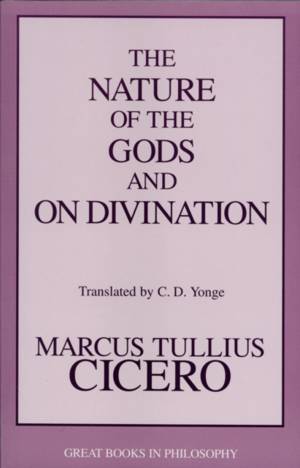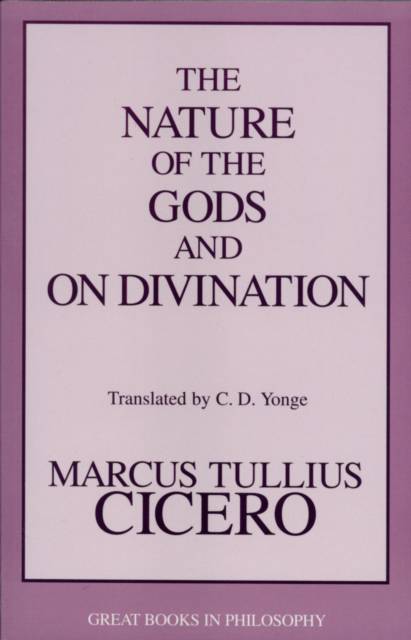
- Afhalen na 1 uur in een winkel met voorraad
- Gratis thuislevering in België vanaf € 30
- Ruim aanbod met 7 miljoen producten
- Afhalen na 1 uur in een winkel met voorraad
- Gratis thuislevering in België vanaf € 30
- Ruim aanbod met 7 miljoen producten
Zoeken
€ 16,95
+ 33 punten
Omschrijving
In The Nature of the Gods, the eminent Roman statesman and philosopher Marcus Tullius Cicero (106-43 BCE) analyzes the positions of the Stoic, Epicurean, and Academic schools on the existence and nature of the gods, and whether they act in the interests of humankind. Cotta, the Academic spokesman, criticizes his Epicurean and Stoic interlocutors for their failures, respectively, to account for human freedom and for the accidents and evils that occur in life. Lacking sure knowledge of what gods are, human beings are left to their own intelligence and natural abilities to make their way in an uncertain world.In the dialogue of On Divination, Cicero and his brother, Quintus, examine various sorts of divination on Stoic principles, which Quintus upholds. Cicero counters that there is no such "science" of divination, and that the ambiguities and absurdities inherent in oracles, prodigies, and dreams preclude any divine agency. They are, rather, the result of natural phenomena or coincidence.
Specificaties
Betrokkenen
- Auteur(s):
- Vertaler(s):
- Uitgeverij:
Inhoud
- Aantal bladzijden:
- 263
- Taal:
- Engels
Eigenschappen
- Productcode (EAN):
- 9781573921800
- Verschijningsdatum:
- 1/12/1997
- Uitvoering:
- Paperback
- Formaat:
- Trade paperback (VS)
- Afmetingen:
- 141 mm x 215 mm
- Gewicht:
- 335 g

Alleen bij Standaard Boekhandel
+ 33 punten op je klantenkaart van Standaard Boekhandel
Beoordelingen
We publiceren alleen reviews die voldoen aan de voorwaarden voor reviews. Bekijk onze voorwaarden voor reviews.











